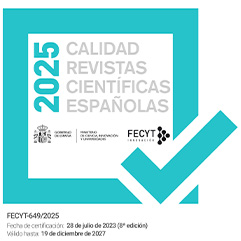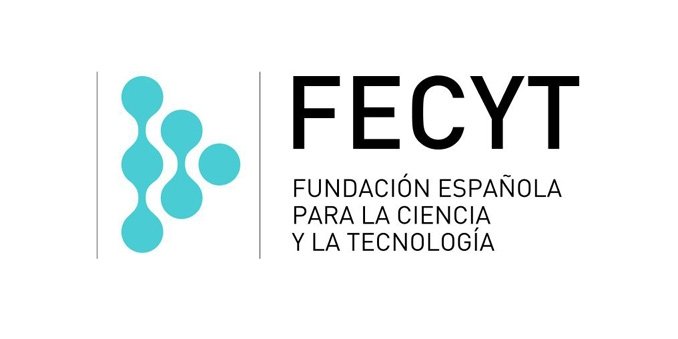El impacto institucional en el emprendimiento de México
Resumen
El dinamismo del emprendimiento representa quizá el elemento más básico para las economías de mercado, ofreciendo distintos beneficios productivos y sociales, cuyo alcance depende de las condiciones en cómo éste se genere. Por ello, esta investigación analiza la relación entre la actividad emprendedora y algunas de las conductas públicas de México, en donde el acceso y apertura gubernamental, la percepción de la inseguridad y la calidad de los servicios públicos representan las variables institucionales de este estudio. A través del método de corte transversal, los hallazgos sugieren que la calidad de los servicios públicos, el acceso y apertura gubernamental son elementos institucionales significativos al momento de iniciar un negocio en diversas regiones del país, mientras que la percepción de la inseguridad no resulta ser un factor estadísticamente significativo, lo que ofrece pautas para su pertinente análisis.
Descargas
Referencias
Acs, Z. (2006): “How is Entrepreneurship Good for Economic Growth?”, Innovations: technology, Governance and Globalization, vol. 1, nº 1, pp. 97-107. doi: https://doi.org/10.1162/itgg.2006.1.1.97
Acs, Z., Desai, S. y Hessels, J. (2008): “Entrepreneurship, Economic Development and Institutions”, Small Business Economics, vol. 31, nº 3, pp. 219-234.
Acs, Z., Estrin, S., Mickiewicz, T., y Szerb, L. (2018): “Entrepreneurship, Institutional Economics and Economic Growth: An Ecosystem Perspective”. Small Business Economics, vol. 51, nº 2, pp. 501-5014. doi: https://doi.org/10.1007/s11187-018-0013-9
Acs, Z. y Vargas, A. (2005): “Entrepreneurship, Agglomeration y Technological Change”, Small Business Economics, vol. 24, nº 3, pp. 323-334. doi: https://doi.org/10.1007/s11187-005-1998-4
Álvarez, C., Amorós, J. y Urbano, D. (2014): “Regulations and Entrepreneurship: Evidence from Developed and Developing Countries”, Innovar, 24, edición especial, pp. 81-89. doi: https://doi.org/10.15446/innovar.v24n1spe.47548
Álvarez, C. y Urbano, D. (2012): “Factores del Entorno y Creación de Empresas: un Análisis Institucional2, Revista Venezolana de Gerencia, vol .17, nº 57, pp. 9-38.
Amorós, E. y Cristi, O. (2011): “Poverty and Entrepreneurship in Developing Countries”, The Dinamics of Entrepreneurship, 209-230. doi: https://doi.org/10.1093/acprof:oso/9780199580866.003.0010
Aparicio, S., Urbano, D. y Audrestch, D. (2015): “Institutional Factors, Opportunity Entrepreneurship and Economic Growth: Panel Data Evidence”, Technological Forecasting and Social Change, nº 102, pp. 45-61. doi: https://doi.org/10.1016/j.techfore.2015.04.006
Avnimelech, G., Zelekha, Y. y Sharabi, E. (2014): “The Effect of Corruption on Entrepreneurship in Developed vs non-Developed Countries”, International Journal of Entrepreneurship Behavior and Research, vol. 20, nº 3, pp. 237-262. doi: https://doi.org/10.1108/ijebr-10-2012-0121
Belanger, F. y Carter, L. (2008): “Trust and risk in E-government adoption”, The Journal of Strategic Information System, vol. 17, nº 2, pp. 165-176. doi: https://doi.org/10.1016/j.jsis.2007.12.002
BID, Banco Interamericano de Desarrollo (2011): Strengthening Transparency and Accountability for Improved Governance, Ed. BID, Washington, D.C.
Bochma, N., Content J., Sanders M. y Stam, E. (2018): “Institutions, Entrepreneurship, and Economic Growth in Europe”, Small Business Economics, pp. 1-17. doi: https://doi.org/10.1007/s11187-018-0012-x
Chingos, M. (2012): “Citizen Perception of Government Service Quality: Evidence from Public Schools”, Quarterly Journal of Political Science, vol. 7, nº 4, pp. 411-445. doi: https://doi.org/10.1561/100.00011071
Davari, A. y Farokhmanesh, T. (2017): “Impact of Entrepreneurship Policies on Opportunity to Startup”, Management Science Letters, nº 7, pp. 431-438. doi: https://doi.org/10.5267/j.msl.2017.6.003
De Wit, G. y De Kok, J. (2013): “Do Small Business Create More Jobs? New Evidence for Europe”, Small Business Economics, vol. 42, nº 2, pp. 283-295. doi: https://doi.org/10.1007/s11187-013-9480-1
Desai, M., Gompers, P. y Lerner, J. (2003): Institutions, Capital Constraints, and Entrepreneurial Firms Dynamics: Evidence from Europe, National Bureau of Economic Research, Working Papers Series 10165. doi: https://doi.org/10.3386/w10165
Estrin, S., Aidis, R. y Mickiewicz, T. (2007): “Institutions and Entrepreneurship Development in Russia: A Comparative Perspective2, Journal of Business Venturing, nº 23, pp. 656-672. doi: https://doi.org/10.2139/ssrn.1017252
Fairlie, R. y Fossen, F. (2017): Opportunity versus Necessity Entrepreneurship: Two Components of Business Creation, SIERPR Discussion, doi: https://doi.org/10.2139/ssrn.3010267
Friedman, B. (2011): “The Relationship between Governance Effectiveness and Entrepreneurship”, International Journal of Humanities and Social Science, vol. 1, nº 17, pp. 221-225.
García-Posada, M. y Mora-Sanguinetti, J. (2014): Entrepreneurship and Enforcement Institutions: Disaggregated Evidence for Spain. Banco de España, Documento de Trabajo 1405. Madrid. doi: https://doi.org/10.2139/ssrn.2413422
González, J. (2009): Teoría del desarrollo económico neoinstitucional, una alternativa a la pobreza del siglo XXI, Primera edición. Universidad de Colima. H. Cámara de Diputados, LX Legislatura, Porrúa. México.
González, J., Osorio, G. y Mungaray, A. (2018): “La microempresa mexicana, un asunto de necesidad y no de oportunidad: el caso de Colima”, Revista Análisis Económico, vol. 33, nº 84, pp. 123-142.
Horsburgh, S., Goldfinch, S. y Gauld, R. (2011): “Is public trust un government associated with trust in E-government?”, Social Science Computer Review, vol. 29, nº 2, pp. 232-241. doi: https://doi.org/10.1177/0894439310368130
Kantis, H. (2008): Emprendedores de Origen Humilde: ¿Cómo Incide la Estructura Social en la Creación de Empresas en América Latina?, BID y FUNDES Internacional, Santiago.
Kantis, H., Angelelli, P. y Koenig, V. (2004): Desarrollo Emprendedor: América Latina y la Experiencia Internacional. BID y FUNDES Internacional, Santiago.
Luksha, P. (2008): “Niche Construction: The Process of Opportunity Creation in the Environment”, Strategic Entrepreneurship Journal, vol. 2, nº 4, pp. 269-283. doi: https://doi.org/10.1002/sej.57
Méndez-Picazo, M., Galindo-Martín, M. y Ribeiro-Soriano, D. (2012): “Governance, Entrepreneurship and Economic Growth”, Journal of Entrepreneurship and Regional Development, vol. 24, nº 10, pp. 865-877. doi: https://doi.org/10.1080/08985626.2012.742323
Mohammadi, M. (2017). “Institutions and entrepreneurship: the mediating role of corruption”, World Journal of Entrepreneruship, Management and Sustainable Development, vol. 13, nº 3, pp. 262-282. doi: https://doi.org/10.1108/wjemsd-09-2016-0045
Mungaray, A., Aguilar, J. G. y Osorio, G. (2016): “Rethinking the purpose of micro-enterprises in developing countries: Evidence for Mexico”, Journal of Developmental Entrepreneurship, vol. 21, nº 3, pp 1-16. doi: https://doi.org/10.1142/S1084946716500199
Mungaray, A., Osorio, G. y Ramírez, N. (2017): Ensayos económicos sobre microempresas de subsistencia en México, MA Porrua-UABC, México.
Munagaray, A., Ramírez, N. y Aguilar, J. G. (2016): Economía del emprendimiento y las pequeñas empresas en México, MA Porrua-UABC, México.
North, D. (1993): Instituciones, Cambio Institucional y Desempeño Económico, Fondo de Cultura Económica, México.
Nystrom, K. (2008): “The Institutions of Economic Freedom and Entrepreneurship: Evidence from Panel Data”, Springer, vol. 136, nº 3-4, pp. 269-282. doi: https://doi.org/10.1007/s11127-008-9295-9
Plummer, L., Haynie, J. y Godesiabois, J. (2007): “An Essay on the Origins of Entrepreneurial Opportunity”, Small Business Economics, vol. 27, nº 4, pp. 363-379. doi: https://doi.org/10.1007/s11187-006-9036-8
Saavedra, R. y Texis, M. (2018). El factor institucional en el emprendimiento por oportunidad de América Latina y el Caribe, working paper.
Samadi, A. (2019). Institutions and entrepreneurship: unidirectional or bidirectional causality?. Journal of Global Entrepreneurship Research, vol. 9, nº 1. doi: https://doi.org/10.1186/s40497-018-0129-z
Shane, S. y Venkataraman, S. (2000): “The Promise of Entrepreneurship as a Field of Research”, Academy of Management Review, vol. 25, nº 1, pp. 217-226. doi: https://doi.org/10.1007/3-540-48543-0_8
Swianiewicz, P. (2001). Between Active Appreciation, Passive Approval and Distrustful Withdrawal, Citizens’ Perception of Local Government Reforms and Local Democracy in Central-Eastern Europe. working paper, Budapest, Hungría.
Tapia, M. (2010): Organizaciones de la Sociedad Civil y Políticas Públicas”, edición los Grandes Problemas de México¸ Ed. El Colegio de México, México.
Texis, M., Saavedra, R. y Aguilar, J. (2016). El papel del capital emprendedor en México, 2000-2014. MA Porrua-UABC, México.
Tolbert, C. y Mossberger, K. (2006): “The effects of E-Government on trust and confidence in Government”, Public Administration Review, vol. 66, nº 3, pp. 354-369. doi: https://doi.org/10.1111/j.1540-6210.2006.00594.x
Urbano, D., y Álvarez, C. (2014): “Institutional Dimensions and Entrepreneurial Activity: An International Study”, Small Business Economics, vol. 42, nº 4, pp. 703-7016. doi: https://doi.org/10.1007/s11187-013-9523-7
Valdez, M. y Richardson, J. (2013): “Institutional Determinants of Macro-Level Entrepreneurship”, Entrepreneurship Theory and Practice, vol. 37, nº 5, pp. 1149-1175. doi: https://doi.org/10.1111/etap.12000
Van de Walle, S. y Geert, B. (2003): “Public Service Performance and Trust in Government: The Problem of Causality”, International Journal of Public Administration, vol. 26, nº 8-9, pp. 891-913. doi: https://doi.org/10.1081/pad-120019352
Descargas
Publicado
Número
Sección
Licencia
- Los autores/as conservarán sus derechos de autor y garantizarán a la revista el derecho de primera publicación de su obra, el cuál estará simultáneamente sujeto a la Licencia de reconocimiento de Creative Commons que permite a terceros compartir la obra siempre que se indique su autor y su primera publicación esta revista.
- Los autores/as podrán adoptar otros acuerdos de licencia no exclusiva de distribución de la versión de la obra publicada (p. ej.: depositarla en un archivo telemático institucional o publicarla en un volumen monográfico) siempre que se indique la publicación inicial en esta revista.
- Se permite y recomienda a los autores/as difundir su obra a través de Internet (p. ej.: en archivos telemáticos institucionales o en su página web) antes y durante el proceso de envío, lo cual puede producir intercambios interesantes y aumentar las citas de la obra publicada. (Véase El efecto del acceso abierto).
La Revista de Estudios Empresariales. Segunda Época, utiliza PKP Preservation Network (PN).




























